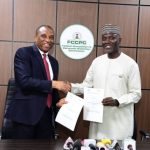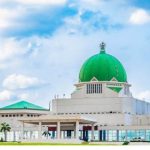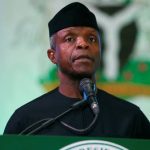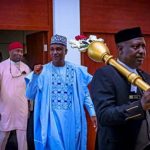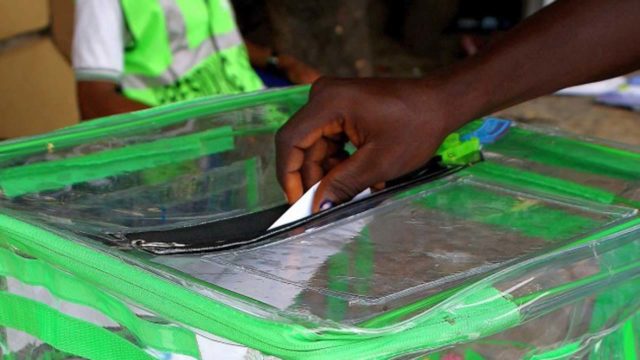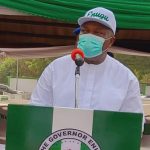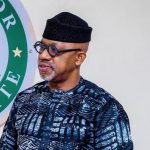By Seye Olumide (Southwest Bureau Chief), Saxone Akhaine (Kaduna), Ann Godwin (Port Harcourt), Charles Ogugbuaja (Owerri), Uzoma Nzeagwu (Awka), Odun Edward (Ilorin) and Isa Abdulsalami Ahovi (Jos)
As the year 2022 ends today, Nigerians have tasked President Muhammadu Buhari’s administration to prioritise policies and initiatives that would make life meaningful and the country livable for the citizens in 2023.
Those who spoke to The Guardian asked President Buhari to ensure that the Independent National Electoral Commission (INEC) conduct free, fair and credible elections that would truly reflect the will of Nigerians and usher in a new administration that would put the country on the path of true development. .
The calls came against the backdrop of widespread complaints by various segments of the society, interest groups and individuals of dashed expectations from a government that is in its twilight, in the coming year.
From the Nigeria Union of Teachers (NUT), the civil society, human rights groups, union of textile workers, pressure and socio-cultural groups and business community to students, the failures of governments at various levels to provide the enabling atmosphere for Nigerians to live good life and thrive, formed the crux of lamentations and the basis for expectations in 2023.
Specifically, the National Publicity Secretary of Pan-Niger Delta Forum (PANDEF), Ken Robinson, said the group’s earnest expectation in 2023 from Buhari is to allow INEC conduct free, fair and credible elections, and to commit to handing over power peacefully to whoever wins the presidential election.
He said: “Any other expectation would be rather misplaced, in the circumstances. They are in the twilight of the administration. What can they do now? Is it what they have been unable to do in seven years that will be done in five months?
“Nigeria has been virtually marooned. Food commodities that used to be routine meals for majority of ordinary Nigerian families a few years ago are now upmarket foods – rice, beans, meat, plantain, bread, name them. Citizens are now struggling to buy premium motor spirit (petrol) at N500 per litre in parts of the country, and even at higher pump prices in other parts. What a shame!
“Therefore, our expectations are that they should provide the enabling environment for elections to hold in all the 176,846 polling units in the country in February 2023, with strict adherence to the Electoral Act, and hand over power peacefully to whoever wins. We hope that the next administration will, somehow, navigate the country out of the present mucky and debilitating state of affairs.”
The Publicity Secretary of Ijaw National Congress (INC), Ezonebi Oyakemagbegha also reiterated PANDEF’s call for a free and fair election, and a peaceful handover to a new government.
“I expect the new government to immediately swing into action and tackle the lingering challenges in the country, which include insecurity across the nation, abject poverty across board, joblessness among the teeming youths, marginalisation of some ethnic nationalities, hike in the price of petroleum products, and unsteady electricity supply from the national grid, among others.”
The INC stressed that its major expectations from the Federal Government next year include declaration of an emergency on the economy, setting a clear agenda on how to improve the economy, and making more budgetary provisions for the agricultural sector and SMEs.
Former National Vice President of Manufacturers Association of Nigeria (MAN), Mrs. Emilia Akpan, canvassed reduction of government investments and involvement in the industrial sector, just as she urged government to prioritise education in 2023.
Akpan, who is also an educationist, added: “Government should approve more universities with hands on programmes to enhance more middle-class workers, and to increase workmen with technical skills now needed for manufacturing industries. Give scholarship to skill courses, IT, metal work, computing, critical engineering courses like agric. engineering, to help increase more of them for industries or for self employment.
“Government should give scholarships to girls enrolled in engineering or hand-based courses. Women constitute 49 per cent of workforce and of self-employed. More women, equipped for self-employment, will raise the GDP of Nigeria and create peace at home. Encourage more food build-up in agriculture and packages of extra food for vexport.”
She also requested for tax break of at least five years for all start-up industries, all categories of companies, with special consideration for SMEs and women. “ The Central Bank of Nigeria (CBN) must increase forex to genuine industries to avoid products price increase and for the purchase of machineries.”
For Farouk Akanbi, former Chairman of Kwara State chapter of the Nigeria Union of Teachers (NUT), the three tiers of government in 2023 should create more employment opportunities for the teeming youth population to drastically reduce poverty among the citizens.
Besides, Akanbi canvassed more security network for arable farmers so that majority of the nation’s citizens who had fled their farms due to insecurity can return towards a boost in the nation’s food supply and raw materials for industries.
“Once we can farm again without fear, poultry and fishpond keepings will be cheaper as the production of feed is dependent on maize and groundnuts. Many people will be engaged again and the cost of feeding will be cheaper,” he said.
Adewale Idowu, a 300-level student of the Department of Biology/Chemistry, University of Ilorin, said for the first time as an undergraduate, he would spend his yuletide on campus due to lack of enough money with which to travel, and the poor economic situation of his retired parents.
On expectations from the government in 2023, the Executive Director, Civil Rights Concern, Comrade Okey Onyeka, urged government to improve funding of education not merely by the amount of money budgeted but the actual money that gets to the field to provide quality education.
“Government should implement the UBE to make sure that every child gets at least a skill before leaving JSS 3. In health, just as in education, it is not the size of the budget but what it is used for. In agriculture, the fact that we can’t produce enough food cheap for home consumption is a sign of failure. The system must be revamped to produce enough food.
“Our politics is a failure, considering that it does not produce development but primitive wealth accumulation. The current efforts by the CBN to mop huge sums of money outside the banking sector tells the story,” Onyeka said.
He also stressed the need for government to allow the electoral system to work, to produce credible results because that is where it starts.
“If the election fails, the system will continue to fail,” Onyeka noted, insisting that the civil society organisations expect the incoming government to improve lives of the masses and encourage development of facilities and infrastructure in the country.
For Jos-based legal practitioner and human rights activist, Chuks James, what Nigerians want about 2023 elections are credibility and transparency.
“They also want maximum application of technology in the general elections as provided by the 2022 Electoral Act and the Nigerian Constitution of 1999 as amended. Nigerians are wiser now. Everybody is ready to vote and be voted for. That is the more reason over 80 million Nigerians have collected their Permanent Voters Cards (PVCs) and are ready to vote. We are calling on the electoral umpire, the security agencies and the ruling government to be neutral, fair and transparent,” he said.
MEANWHILE, socio-political and cultural organisations and members of civil society in the Southwest have dismissed as wishful thinking any expectation that President Buhari can do anything extraordinary between now and May 29, 2023 when he will leave office.
In separate interactions with The Guardian, Chairman, Afenifere Renewal Group (ARG), Mr. Wale Oshun said it was late to set any agenda for the incumbent president and his advisers ahead of next year when he only has five months to stay in office.
In another discussion, a stalwart of Ilana Omo Oodua, a self-determination group in Southwest, Maxwell Adeleye said it would amount to a waste of time telling Buhari to do anything in five months just as he said the group believed and would continue to push its self-determination agenda.
Speaking in similar vein, Yoruba Ronu Leadership Forum (YRLF), said with five months left to exit, anyone expecting a turn-around from the Buhari presidency would have to wear better spectacles.
A veteran journalist and member of several socio-political groups and civil society organisations, Wale Adeoye said what Buhari and his vice, Prof. Yemi Osinbajo could do is to ensure free, fair and credible election and leave the stage for another leader.
Speaking to The Guardian over what is expected of President Buhari’s administration as Nigeria enters another year tomorrow, Oshun said: “For somebody who said he is tired and that he would love to return to his home to rest, what else do we expect and or what agenda can he implement in less than five months which he failed to achieve in seven and a half years?
“It is a wishful thinking to imagine that Buhari will ensure state police, restructure the country or take any decisive steps to stop insecurity. I wouldn’t want Nigerians to unnecessarily raise their hopes in less than five months.”
Oshun said if Buhari wanted to make any significant impact now, that would be in the area of constitutional amendment to critical areas of economy, security and autonomy to state and local governments.
He, however, noted that all these issues are enormous tasks and members of the National Assembly will be busy with their various elections. “So, what is he going to achieve in five months and for that matter in election period?”
President, Yoruba Ronu Leadership Forum, Akin Malaolu, in a statement, entitled ‘President Muhammadu Buhari cannot ‘Get it up’ again to make up Nigeria in five months’ said: “Two of the very good reasons our leadership forum worked and supported the candidacy of Buhari first in 2011 and later in 2015-2019 were the facts that he has integrity plus honesty and can be trusted to make Nigerians loyal citizens. But despite the advantages of having these good attributes, he made hash the golden opportunity to make Nigeria better by building castle in the air mostly.
“From the inception of his government in 2015, he abused the federal character principle to favour his own ethnic blood. He spent too much time thinking of how to stem banditry and Boko Haram insurgency until when they got out of control. Various shifting of deadlines, procurement of weapons and puffing are yet to bring any semblance of peace to the country.”
“In the education sector, he increased the numbers of out-of-school children due to long strikes within the sector and to the economy, he has helped to increase devaluation of the naira to a ridiculous level. Today, the nation is facing unemployment threats, forex threats, energy and power threats and low productivities in the economy. And chiefly also, insecurity is still rife nationwide.
“In fairness to the President, Nigerians knew of his incapacitation educationally before he was made President but we still reinstalled him in 2019, which shouldn’t have been. If our leadership forum must accept the blame for bringing him back to power in 2019, we shall encourage Nigerians to turn their back on the ruling All Progressives Congress (APC) because the political leaders and beneficiaries of his presidency and government carefully muted their voices while things changed from bad to worse. We are very sad indeed.”
Adeleye of Ilana Omo Oodua warned Nigerians to desist from setting any agenda and or raising their expectations about the political leaders or the present governing system. He insisted that Ilana Omo Oodua is bent on seeing through self-determination for the sub-region.
The National Union of Textile, Garment and Tailoring Workers of Nigeria (NUTGTWN) made a passionate plea for President Buhari to take urgent steps to revitalise the textile industry before he hands over in 2023, assuring that the move would support speedy revival of the economy.
President of NUTGTWN, Comrade John Adaji, said the country would remember Buhari if efforts in reviving the textiles industry becomes a primary focus before he exits office.
“Nigeria’s textile industry was once a booming sector of the economy and was one of Africa’s largest industrial sectors, the sector was capable of producing an estimated 1.4 billion assorted textile items, ranging from bed sheets, African prints to shirting materials, among others.”
While lamenting that today the textiles sector had become a shadow of itself, Adaji observed that the industry was plagued by government policy summersaults, poor infrastructure and high cost of production, which led to its inability to compete favourably with imported clothing items.
In view of this, the NUTGTWN President said in the coming 2023 general elections, its members would only cast their votes for any candidate with a blueprint to revitalise the textile industry and industrialise the country.
Source: The Guardian


